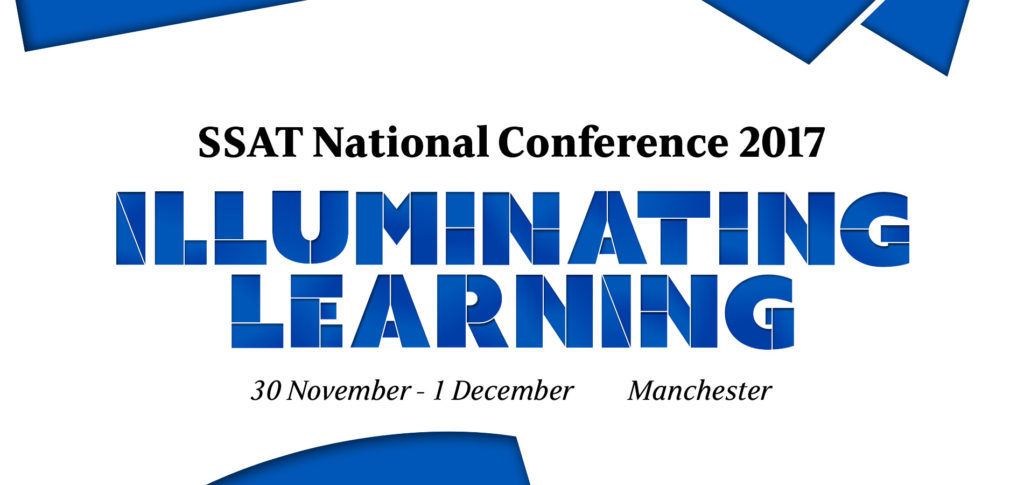
 Tom Middlehurst reflects upon the conference theme ‘illuminating learning’ and highlights some urban myths in education to be covered in Professor Kirchner’s main stage presentation.
Tom Middlehurst reflects upon the conference theme ‘illuminating learning’ and highlights some urban myths in education to be covered in Professor Kirchner’s main stage presentation.
As we approach the SSAT National Conference, taking place next week in Manchester, I have been thinking a lot about the theme ‘Illuminating learning’.
It is intended to be open to interpretation, and we’ll hear a number of perspectives on what illuminating learning means. Perhaps most challenging will be professor Paul Kirschner from the Open University in the Netherlands, who will make a frank and unapologetic debunk of several persistent myths in education. Prepare to be challenged!
Having read his book, Urban myths about learning and education, over the summer and spoken to Paul about his contribution over the last weeks, I have certainly been challenged to confront some of my own assumptions about teaching and learning.
My overriding feeling having read Paul’s book is actually how little we know about how the mind works, and how the process of learning happens. And yet, so much of what happens in classrooms, and so much that is related through CPD and training sessions, is presented as hard evidence, as fact. Notions such as preferred learning styles, learning hierarchies, and the 21st century learner are all undermined by Paul and his co-authors.
Myth: 21st century learner
Let’s take the last myth as an example. Did anyone, really, ever believe that today’s learners are so different from people learning 20, 50 or even 2500 years ago? Does anyone really think that technological advances have fundamentally changed how human beings remember, practise and apply knowledge and skills? Paul points out that knowledge acquisition and retention has changed very little over time: how and when we access knowledge may change, but the neurological and emotional processes behind learning remain unchanged.
Moreover, the particular nature of 21st century skills is now widely acknowledged as bunkum, a point reinforced by Paul in his book. A moment’s thought will reveal that the skills commonly cited as needed for 21st century learners – eg creativity, resilience and communication – have clearly always been important. Again, does anyone really think that these skills are unique to the naughties, and were not valued and nurtured in the ancient world, the Renaissance or the Enlightenment?
People may agree or disagree with the above assertions but, rightly or wrongly, these ideas have permeated English and global education for some time. My own experience of teacher training and CPD definitely presented ideas such as learning styles and 21st century skills as gospel, with little opportunity for critical analysis of the research behind them.
If we are going to really illuminate learning, we need to be reflective and critical about our own practices. Sometimes, this will be uncomfortable, and we may have to admit that what we were doing before didn’t have an impact. But in the interests of all young people’s life chances, this is not only a useful reflection to make, but a crucial one.
Tom Middlehurst is hosting the main stage at the SSAT National Conference. Read more in the NC17 blog series:
- The Chartered College of Teaching: on the cusp of change for the profession
- How a frustrated teacher became an expert in educational psychology
- Courageous leadership and the school curriculum
- How breadmaking can illuminate learning
- What has Hillsborough to do with school leadership?
- What does excellence mean as a school leader?
- Common sense? It’s not that common
Book your place at SSAT National Conference 2017: Illumination learning
